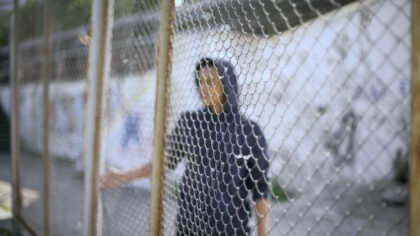Immigration detention is never in the best interest of children and must end, OSCE human rights head says
WARSAW, 16 December 2022 – Immigration detention is never in the best interest of children and we need to increase efforts to end it entirely, the OSCE Office for Democratic Institutions and Human Rights (ODIHR) said ahead of this year’s International Migrants Day.
“Children who have often made a long and perilous journey to safety, whether together with their families or travelling alone, are still being detained in many countries across the OSCE – too many,” said ODIHR Director Matteo Mecacci. “Deprivation of liberty has a serious impact on any migrant, but it has a particularly damaging effect on children.”
There are no exact figures on how many children are in immigration detention worldwide, as many governments do not keep or release this data, and even when available, these figures can change quickly. However, a recent review of legislation and practices by the UN in 38 European countries found that immigration detention of children takes place in at least 27 countries in the OSCE region.
ODIHR works to ensure the safety of migrant children and respect for their rights. This year alone, the Office has trained 43 human rights defenders from the OSCE region in human rights monitoring at international borders, including immigration detention facilities. They play a crucial role in documenting the immigration detention of children, as well as helping ensure their release. At the same time, ODIHR supports countries across the region in designing and carrying out inclusive integration policies that take on board the specific needs of migrant and refugee children.
Unaccompanied children are a particularly vulnerable group of migrants and asylum seekers, with children placed in immigration detention facing serious, long-lasting consequences for their mental health and education. They are often traumatised by having to flee their country of origin and their subsequent journey, and placing them in detention increases the negative experience and the likelihood of long-term repercussions.
There are also examples of good practices and alternative measures that avoid detaining migrant and refugee children. These include supported independent living, foster and family-based care for unaccompanied children and supervision and case management as alternatives. These and similar measures need to be taken into consideration and made use of wherever possible.
All OSCE countries have recognised the rights of the child and committed to doing so in their domestic legislation in line with international agreements. States have also recognised the need to actively promote the rights and interests of children involved in or affected by armed conflict and post-conflict situations, including refugees and internally displaced children.
